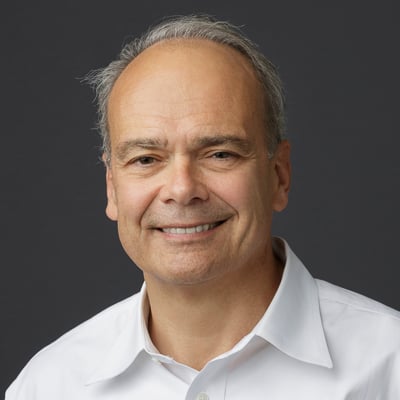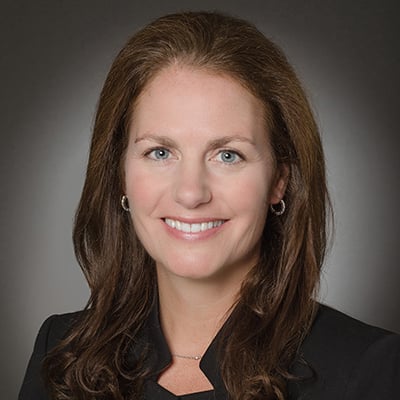IP MVP: Kirkland & Ellis' Luke Dauchot
As lead trial counsel for Medtronic Inc. subsidiary Warsaw Orthopedic Inc. in its patent dispute with NuVasive Inc., Luke Dauchot of Kirkland & Ellis LLP parlayed his extensive knowledge of the patents-in-suit along with his ability as a team leader into a jury award worth over $100 million, earning him a spot on Law360's list of IP MVPs.
After losing to Dauchot in a couple of landmark cases, medical supply giant Medtronic retained him for its fight against NuVasive over patents for implants and devices used in spinal surgeries.
Dauchot was keenly familiar with the patents-in-suit, having helped his friend and former client Gary K. Michelson settle a patent fight with Medtronic years earlier, which ended in the company acquiring Michelson's entire patent portfolio for $1.53 billion.
And that familiarity didn't hurt, when after a two-week trial in September, a jury came back with a $101.2 million award for his client. However, Dauchot is quick to credit his team for the win.
"It was a hard fought litigation," Dauchot said. "But it was a team effort on our side."
While many seasoned trial attorneys would have questioned all the witnesses themselves, Dauchot had faith in the depth of his team and turned to Kirkland associates Nimalka Wickramasekera and Sharre Lotfollahi.
Dauchot's use of different lawyers paid off as the jury seemed to appreciate the lack of uniformity.
"Jurors took a strong liking to them, and found that they enhanced the credibility of the presentation," Dauchot said of the associates. "Indeed, jurors want to see smart, deferential and prepared junior lawyers succeed. Their relative inexperience is a plus — it exudes an innocence that enhances credibility. I think it helped our chances."
In another win for Kirkland this year, Dauchot took over the reins for Alcatel-Lucent USA Inc. on retrial of their fight against Microsoft Corp. over patents covering graphical user interfaces.
In 2008, the jury found for Alcatel-Lucent, however, on appeal, the Federal Circuit affirmed the jury's verdict that the patent was valid and infringed, but vacated the $358 million damages award as unsupported by the evidence and remanded the case for a new trial on damages.
At this point, Dauchot took over the case and pressed for damages in the amount of $70 million, while Microsoft insisted that damages of $2 million to $5 million would suffice.
After a day and a half of deliberating, the jury came back on July 29 and handed Lucent a $70 million verdict.
Again, Dauchot gave credit to his team, specifically to Kirkland junior partner and second chair Jeanne Heffernan.
"Experienced talent is, of course, indispensable," Dauchot said. "Jeanne selflessly took weight off my shoulders at trial and brought to the table [her] own unique style that complemented mine."
In the world of high stakes, complex and often technically challenging intellectual property litigation, Dauchot maintains that a group effort by a collection of talented attorneys was integral to his successes.
"I've tried plenty of cases but because of the size and number, I need to rely on others. I could not do what I'm doing today without being surrounded by extraordinary talent," Dauchot said. "I'm blessed to be with a firm that attracts that sort of talent."
Dauchot said he was drawn to intellectual property law after being retained by Shell Oil Co. in the mid-90s in a patent dispute with the University of Akron over an oil additive.
After spending a year in and out of Houston, studying the text and learning organic chemistry, Dauchot said he came away with a new appreciation for the nuance of patent litigation.
"What fascinated me was the intersection between the art of trying a case, the technical complexity the case presented and the law," Dauchot said. "It is at once arcane and complex but intellectually very challenging and very rewarding."
However technical the case is, Dauchot says that much of litigation boils down to what many of his mentors taught him years ago: putting together a compelling theme, making sure your witnesses are credible, and knowing what and what not to ask on cross-examination.
Dauchot adds that mentoring is integral to any successful firm.
"Mentoring is a very important part of the practice. I was a beneficiary of very selfless mentors
who were willing to share the limelight and take a risk on me," Dauchot said. "They were willing to give me enough rope to grow and make mistakes."
It's that kind of mitigated guidance that Dauchot tries to employ with his own team, and its what he hopes he is remembered for as an attorney, just as much as any $100 million jury verdict.
"At some point, I'm going to be out and then the question is, 'What's your legacy?' My legacy isn't just a list of cases, that's part of it, but really it's to have these lawyers become bigger successes than I am," Dauchot said. "If that's my legacy then … wow. There is nothing like watching junior people improve and get more confident. That is so rewarding."
REPRINTED WITH PERMISSION FROM THE DECEMBER 12, 2011 EDITION OF LAW360 © 2011 PORTFOLIO MEDIA INC. ALL RIGHTS RESERVED. FURTHER DUPLICATION WITHOUT PERMISSION IS PROHIBITED


